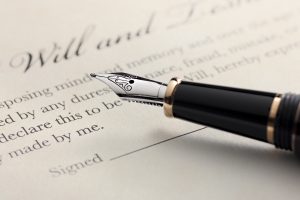 The process of determining the identity of assets which belong to an estate is a fundamental responsibility of an executor or administrator. In most cases it is easy to locate a decedent’s bank or financial accounts or real estate. There are typically statements or deeds or other documents which clearly show the ownership of the asset. Also, account balances or real estate valuations are available on a routine basis. Most fiduciaries appointed by the Surrogate’s Court can complete the asset investigation process without much delay.
The process of determining the identity of assets which belong to an estate is a fundamental responsibility of an executor or administrator. In most cases it is easy to locate a decedent’s bank or financial accounts or real estate. There are typically statements or deeds or other documents which clearly show the ownership of the asset. Also, account balances or real estate valuations are available on a routine basis. Most fiduciaries appointed by the Surrogate’s Court can complete the asset investigation process without much delay.
However, there are numerous instances where asset identification and collection can be complicated and involve estate litigation. The New York Probate Lawyer Blog has published many articles concerning assets and estate settlement. In situations where it appears that a third party is withholding assets which belong to an estate, the Surrogate’s Court Procedure Act provides some remedies. SCPA Section 2105 entitled “Proceeding to compel delivery of property by a fiduciary which is claimed by another or others” allows a fiduciary to engage in discovery measures to ascertain if estate property is being withheld. Deposition testimony and document review is available to assist in this investigation. If it appears that assets of an estate are being withheld, the Court can hold a hearing to determine proper ownership.
Another Surrogate’s Court method of review regarding asset collection involves the accounting process. Accounting proceedings require the administrator or executor to provide to estate beneficiaries all information regarding asset collection and expenditures from an estate. This allows a beneficiary to examine whether estate assets have been properly collected and disposed of. A recent Ulster County estate case entitled Estate of Oakley, decided by Ulster Surrogate Sara McGinty on February 9, 2022, concerned an interesting issue regarding estate asset ownership. In Oakley, an executor had provided an accounting. Among the contested items relating to the accounting were checks totaling $95,000.00 which appeared to have been signed by the decedent right before death. These checks were made payable to the executor. The executor claimed that the checks were given to him by the decedent as gifts. In reviewing the alleged gift transactions, the Court found that neither of the two checks comprising the $95,000.00 total were credited to the executor’s bank account prior to the decedent’s death. The Court pointed out that in order for an alleged gift to be completed, the subject of the gift needs to be delivered. A gift in the form of a check becomes complete when a check has been deposited into and credited to the payee’s account during the lifetime of the donor / payer. Where the donor dies before the completion of the deposit and the credit, a gift is incomplete. Since the funds represented by the checks were not transferred, they remained part of the decedent’s assets.. The $95,000.00 was an estate asset.
Not only did the Court find that the alleged gift was invalid, the Court stated that there was lack of evidence that the decedent had donative intent to make the alleged gift.
As can be seen from Oakley, it may be very difficult to determine which assets belong to a decedent and to demonstrate the true ownership of such items. Long and costly Surrogate’s Court proceedings may be required. I have represented parties in asset dispute cases in estates throughout New York. Call Me Now for a free confidential review of your estate issue, including probate, estate administration and accounting matters. We offer reasonable and flexible fee arrangements and personal representation.
New York Trusts and Estates Attorney Jules Martin Haas has helped many clients over the past 40 years resolve issues relating to guardianship and probate and estate settlement throughout New York City including the Bronx, Queens, Brooklyn, Manhattan, Nassau and Suffolk County. If you or someone you know has any questions regarding these matters, please contact me at (212) 355-2575 for an initial free consultation.
 New York Probate Lawyer Blog
New York Probate Lawyer Blog

